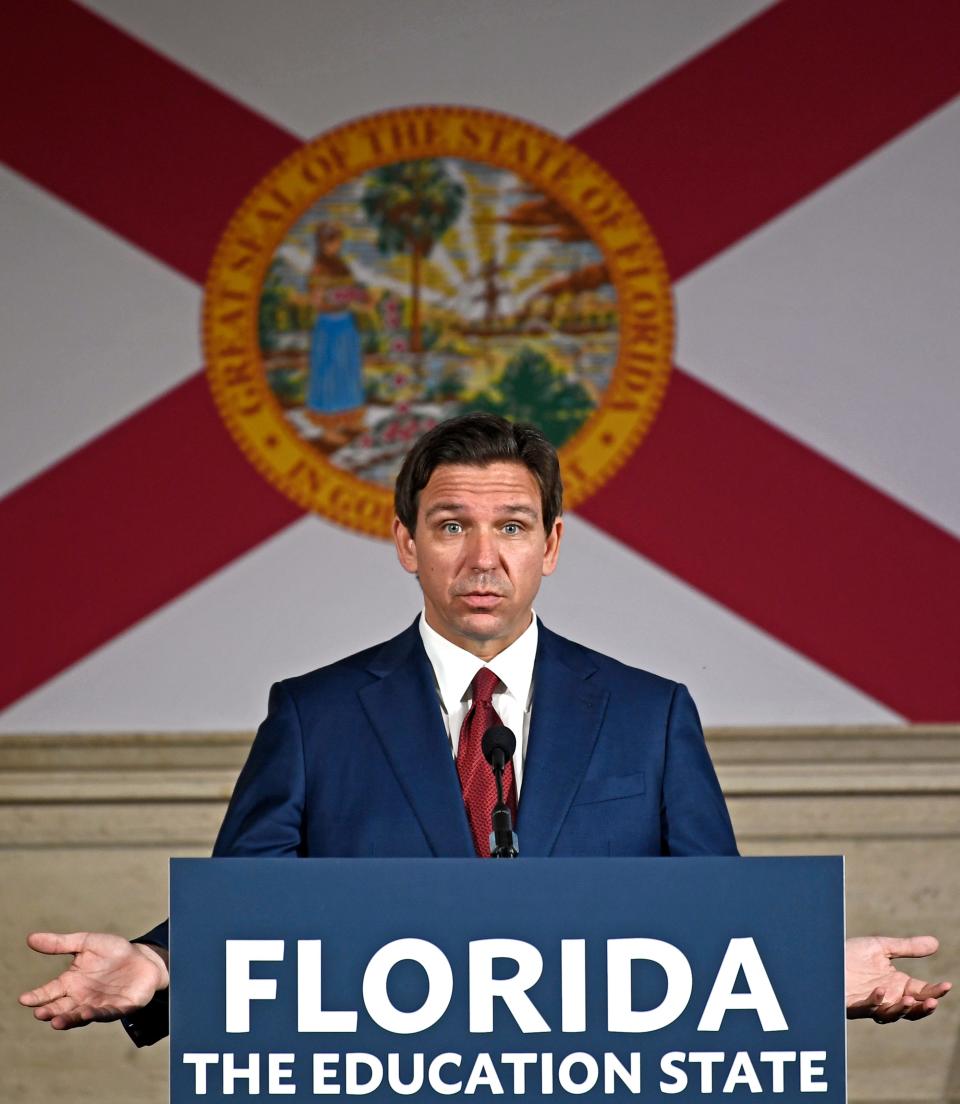National college professors group sanctions New College: 'politically motivated takeover'
- Oops!Something went wrong.Please try again later.
The governing body of the American Association of University Professors voted to sanction New College of Florida for "substantial non-compliance" with academic governance standards, the organization announced in a press release Monday morning.
A sanction from the AAUP serves to inform professors and others of poor working conditions at higher education institutions, according to the organization's sanction list.
In a 32-page December report titled "Political Interference and Academic Freedom in Florida’s Public Higher Education System," the AAUP outlines an "unprecedented politically motivated takeover of New College of Florida," and the imposition of an "aggressively ideological agenda, marked by a complete departure from shared governance," according to the organization.
"The contagion is spreading. It’s not just a Florida problem," said Amy Reid, the faculty representative on New College's Board of Trustees, in a committee interview with the AAUP.
Nathan March, a spokesperson for New College, said that the AAUP doesn’t have the right to sanction anyone. He called the announcement a “headline grab”.
“Their persistent targeting of New College for any change they disagree with is clear evidence that New College is at the forefront of reforming higher education,” he said.
In December, New College President Richard Corcoran released a statement about the AAUP’s report where he said the findings did not align with his vision for New College.
“We are committed to cultivating a growing environment that encourages free inquiry, expression, and academic rigor,” Corcoran said. “Our aspiration is to redefine higher education, fostering an era where profound scholarship and purposeful education thrive.”

Since January 6, 2023, New College has been the subject of a transformation spearheaded by DeSantis. One of the governor's aides described shift as reshaping the college in the image of Hillsdale College, a private conservative, Christian liberal arts school in Michigan.
DeSantis launched the transformation by appointing six new conservative trustees to the college’s board, who swiftly fired the sitting president and appointed former education commissioner and Florida Speaker of the House Richard Corcoran as the interim president.
Corcoran quickly moved to establish an athletics department at the college, which previously only competed in small club sports led by students. Sports drove record enrollment through athletic recruiting but at an academic cost of test scores and grade point average.
The drop in scores combined with the reputation of the school since the changes was followed by New College dropping 24 spots in the U.S. News and World Report rankings of top liberal arts colleges in the country.
While the state pumped unprecedented funding into New College to support the transformation, numerous students and faculty left the school. More than one-third of the college's faculty left in the months after the announced changes, a figure that New College's provost Brad Theissen called "ridiculously high."
Follow Herald-Tribune Education Reporter Steven Walker on Twitter at @swalker_7. He can be reached at sbwalker@gannett.com.
This article originally appeared on Sarasota Herald-Tribune: New College of Florida sanctioned by national college professor group

